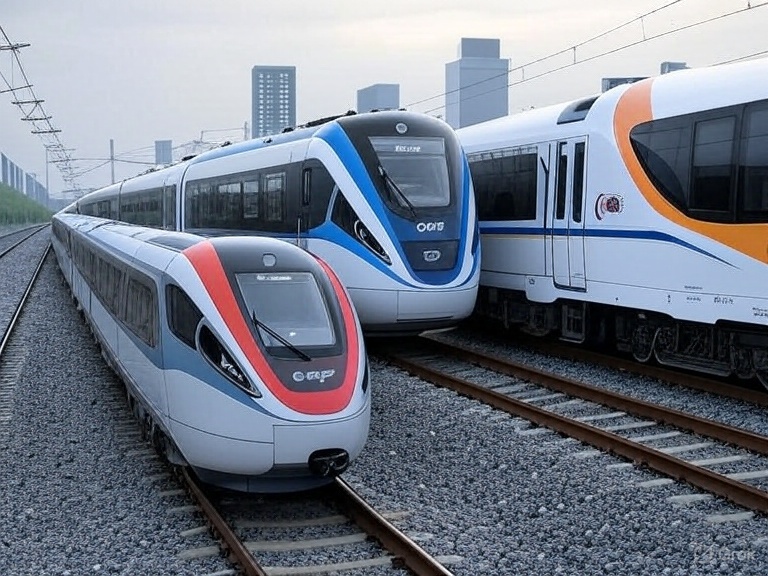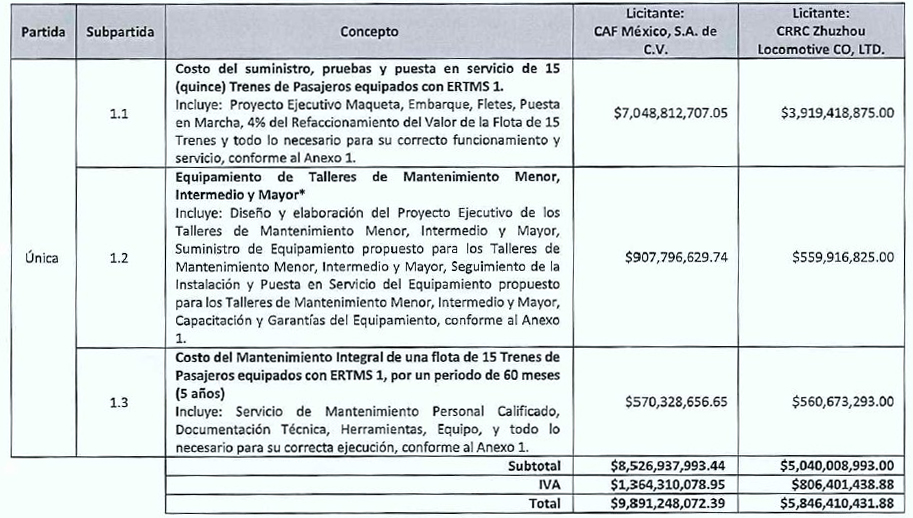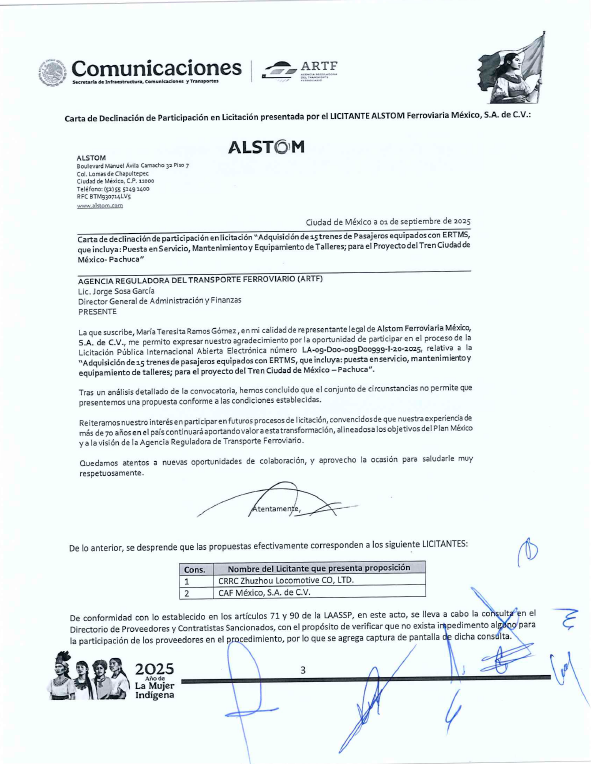
Reservation booth:+86(0)21-3114 8748
Visit/media contact:+8613601815988
QQ:2463282767
email:artsexpo@sgexpo.cn
Rail Transit Exhibition News The Mexico-Pachuca line train procurement project led by the Mexican Railway Transport Regulatory Authority (ARTF). Officially entered the review stage. The project aims to procure 15 electric trains that will serve the connection between Felipe Ángeles International Airport (AIFA) and HidalgoStrategic railway line in the capital Pachuca. It is expected that after opening, it can carry 100,000 passengers per day, greatly improving regional transportation and airport connectivity.

Two international giants participated in the bidding
This time, two international railway manufacturers submitted complete technical and economic solutions:

CAF México (Spanish company), with an offer of 9.891 billion pesos, includes train delivery (700 passengers per train), 60 months of maintenance services and depot construction. CAF has successfully delivered the suburban railway (Buenavista–Cuautitlán) to Mexico City.
CRRC Zhuzhou Locomotive (CRRC Zhuzhou Locomotive), with a more competitive offer of only 5.846 billion pesos. The company was involved in the modernization of Mexico City Metro Line 1 and supplied vehicles for the Monterrey Metro.
The ARTF will announce its final ruling on September 10.
Strikingly, the French Alstom, which built the "Mayan Train" train, finally withdrew from the bid. The company said that after a detailed analysis of the bidding conditions, it "did not meet its standards" and therefore could not submit a feasible plan. Alstom has previously shown active interest and raised 92 questions in the clarification session, far ahead of the CRRC (27) and CAF (7).

The Mexico-Pachuca line is a key transportation project promoted by the federal government, requiring purchased trains to be compatible with existing suburban rail technology to ensure smooth access to existing infrastructure. It is expected that the line will be able to complete the two-way traffic in 75 minutes, making it an important choice for air passengers and commuters.
To ensure quality, the ARTF has adjusted the evaluation criteria to give 65% weight to technical solutions and 35% to economic solutions. The proposal submission date, originally scheduled for 18 August, has also been postponed to 1 September to fully respond to thousands of questions raised by companies.
CAF: Experience in local projects in Mexico, comprehensive solutions, but high quotations;
CRRC: low quotation and rapid market share expansion;
Alstom: Unexpected exit, sparking speculation about the conditions of the tender.
Rail industry experts believe that the ARTF needs to find a balance between price, technical reliability and long-term maintenance when adjudicating. This decision is not only related to the operation of the line for the next ten years, but will also be a bellwether to test the bidding mechanism for Mexico's large-scale transportation infrastructure.
As the ruling day approaches on September 10, this rivalry involving CAF vs. CRRC has become a focal point for the Mexican rail industry.